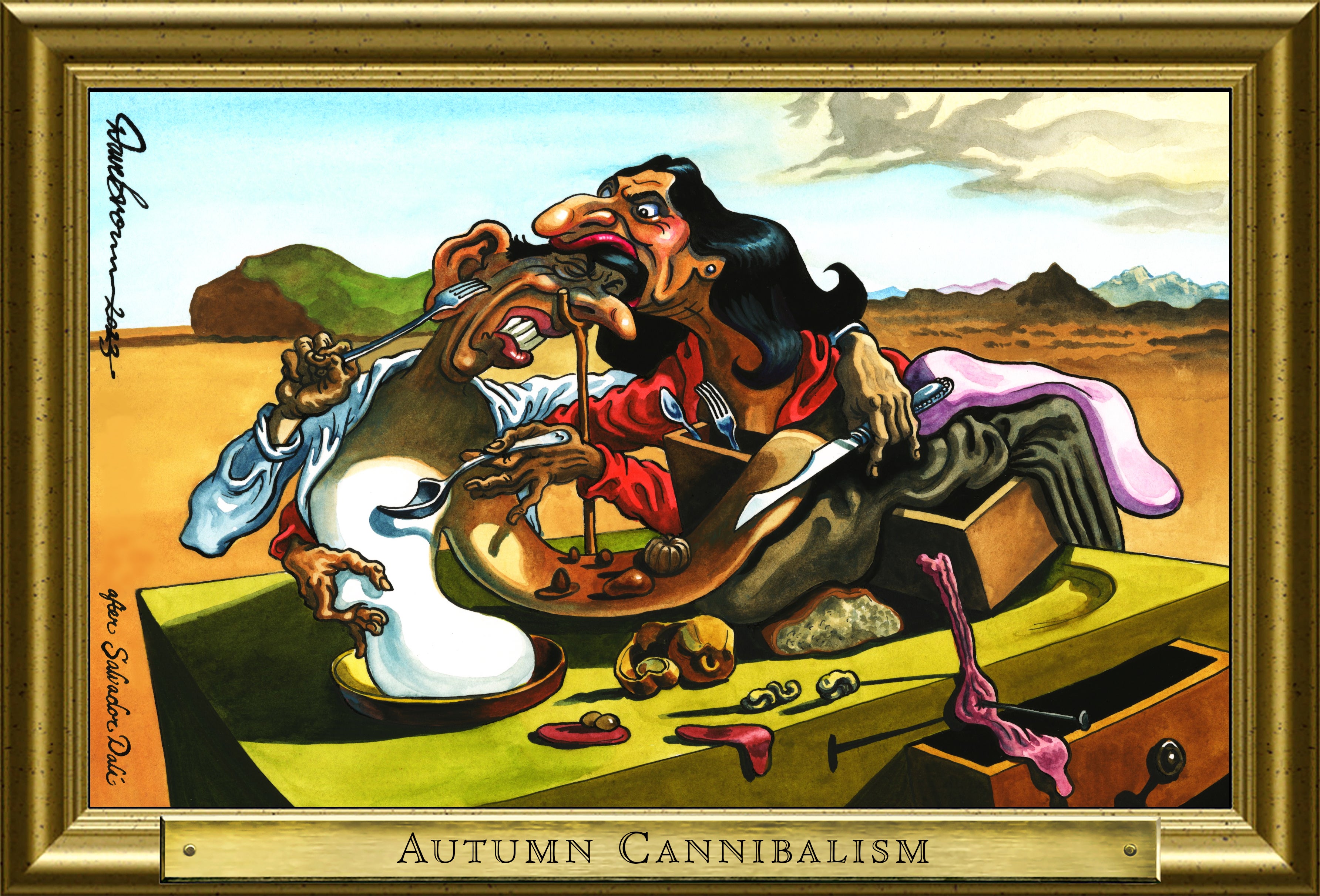Suella Braverman sought to provoke – but badly misjudged the situation
Editorial: Few of her ministerial colleagues are offering even token support, and none will repeat the disgraceful words she’s used. Even more embarrassingly for the home secretary, the Royal British Legion has come out against her

The broad reaction to Suella Braverman’s intemperate outburst this week, inside her own party and beyond, underlines just how badly she has misjudged the situation. She sought to provoke – but she succeeded perhaps too well for her own good. The damage done to a nation already riven by an increasingly strident political discourse is grave.
It is a painful irony that she wants to start yet another culture war at a time when we recall the suffering in real wars. There are signs, thankfully, that she will not prevail.
Few of her ministerial colleagues are offering even token support, and none will repeat the disgraceful words she’s used. The respected chair of the justice committee, a distinguished lawyer and a senior Tory figure, Sir Bob Neill, has said she’s crossed a line. Others dismiss her as “unhinged”.
Even more embarrassingly for the home secretary, even the Royal British Legion has come out against her. As measured and sensible as Ms Braverman is impetuous and inflammatory, the Legion reminds us that “the British armed forces play a vital role in protecting the rights and freedoms of everyone in UK society, including the right to protest”.
General Sir Richard Dannatt, a former chief of the general staff, is just one of the many military figures to have expressed that view to The Independent: “Those that fought in the First and Second World War did so to protect our freedoms, one of which is the freedom of speech and another is the freedom to protest... Banning it purely provokes and is contrary to the spirit of this country.” Without labouring the point, the United Kingdom stood against fascism and Nazism, sometimes alone, and has no need of its misguided successors on the far right to “defend” its memorials.
The right to protest, in fact, is the tradition of the whole nation – and, before Ms Braverman, Tom Tugendhat and the prime minister began talking about banning the march organised by the Palestine Solidarity Campaign, there was virtually no possibility of serious trouble.
The protest wasn’t ever going to go near the Cenotaph in any case, and will take place at a different time to the various services and obsequies. It is not even on the same day as the principal national event on Remembrance Sunday, replete with members of the royal family, military, religious and political leaders, which always takes place under maximum security.
There never was a need for “patriots” to defend the memorial stone. Now there is a chance that thugs and extremists will find some venue to cause disruption. The home secretary’s ill-advised words may yet become a self-fulfilling prophecy, as perhaps she might have intended, such are her irrational ways.
Along with the King, Queen, prime minister, leader of the opposition and Commonwealth high commissioners, she will be laying a wreath on Sunday for the members of the security and intelligence services – incongruous as that feels, given that she has undermined the unity and dignity that should surround the proceedings. She will, however, be able to see for herself, first hand, how well policed the ceremonials are bound to be – as they always are.
The “last Tommy” passed some years ago, and there are only around 1,500 survivors of the “greatest generation” who fought vile racism in the last world war. It is almost 80 years since the end of that conflict, yet almost constant British participation in conflicts around the world since then has meant that Remembrance Sunday retains its relevance and its central place in national life.
It is right and proper that those who have died in the service of the nation’s freedom are honoured, as well as those who have suffered injuries, and those who are doing their bit today. It is a solemn day, and the silence is symbolically held to mark the moment when the guns fell quiet at the end of the Great War – a ceasefire, in fact.
Soon after that the Cenotaph, designed by Edwin Lutyens, was placed at the centre of our national consciousness, where it has remained ever since, the rituals of the service of remembrance virtually unchanged in decades. This year, as ever, it will go ahead in peace, and be a reminder of the peace that so many in the Middle East and across the world yearn for.



Join our commenting forum
Join thought-provoking conversations, follow other Independent readers and see their replies
Comments